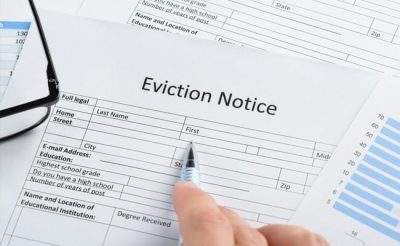Residential Landlords Should Prepare Now for 2021 Return of Evictions
 For much of 2020, residential landlords have had little leverage to collect rent payments.
For much of 2020, residential landlords have had little leverage to collect rent payments.
Between the Tennessee Supreme Court instructing Sessions Courts to suspend eviction hearings and the Centers for Disease Control and Prevention (CDC) regulations making it difficult to remove tenants that aren’t paying, there is no doubt there are a good number of tenants that are behind on their rent with no realistic chance of getting caught up when the CDC regulation restrictions expire on January 1, 2021.
There may be agencies providing assistance to tenants struggling due to the pandemic, and landlords should consider encouraging their tenants to seek out any assistance from the various avenues available, including the United Way. This pandemic relief may be the simplest way to reach the goal of rent payment and avoiding the eviction process during these times.
If a landlord is in the unfortunate situation of no option but eviction, the landlord should be planning now for January. The Residential Landlord Tenant Act and the requirements of the lease with the tenant should be reviewed. Are your notices up-to-date? Are your damages calculated to include any fees and interest to which you may be entitled under the lease? When should you file the detainer action?
If you wait until January to address these issues, it is likely that you will not regain possession of your rental property until February or later. While unknown at this point, it would not be surprising to see the Biden administration seek to further the CDC restrictions as the president-elect says that addressing the pandemic will be a high priority on January 20.
A landlord with a tenant that is significantly behind in rent would be well served to move quickly in early January to obtain possession. To do this, notices and detainer actions will need to be prepared in advance. While each lease and situation is different, here are some points to consider:
- Determine all the grounds to assert breach of the lease
- Calculate the current rent, fees, and costs owed
- Give required notices at least 30 days before suit
- Document any damage the property may have incurred during the lease period
As of now, January offers landlords what may be a limited window to remove non-paying tenants.
Source: jdsupra.com















 Accessibility
Accessibility